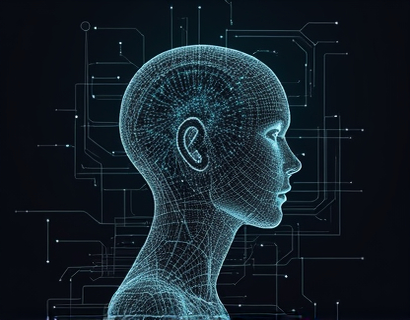AI-Generated Podcasts: Revolutionizing Audio Entertainment with Intelligent Content Creation
The audio landscape is undergoing a significant transformation with the advent of AI-generated podcasts. This innovative fusion of advanced technology and creative storytelling is redefining listener engagement and offering a new dimension in discovering and enjoying insightful discussions on diverse topics. AI-powered podcasting is not just a novelty; it's a revolution that is reshaping how content is created, consumed, and experienced.
The Rise of AI in Podcasting
The integration of artificial intelligence in podcasting is a relatively recent development, yet it has already made substantial impacts. Traditional podcasting relies heavily on human creativity and effort, from scriptwriting to voice acting and editing. AI technology automates and enhances these processes, making podcast production more efficient and accessible. The use of AI in podcasting encompasses various aspects, including content generation, voice synthesis, and even audience engagement analysis.
Content Generation: The Core of AI-Powered Podcasting
At the heart of AI-generated podcasts is the ability to create compelling and coherent content autonomously. Advanced algorithms and natural language processing (NLP) enable AI systems to understand and generate human-like text. This capability allows for the creation of scripts that are not only grammatically correct but also contextually relevant and engaging. The AI can draw from vast databases of information to ensure accuracy and depth in the topics discussed.
One of the most significant advantages of AI-generated content is its scalability. While human writers can only produce a limited number of episodes per week, AI can generate multiple episodes simultaneously, catering to a broader audience and diverse interests. This scalability is particularly beneficial for niche topics or specialized communities that may not have enough demand to support traditional podcast production.
Voice Synthesis: Bringing AI Content to Life
Once the content is generated, the next step is to bring it to life through voice synthesis. Modern AI voice synthesis technology has advanced to the point where synthetic voices can mimic human speech with remarkable fidelity. These voices are not only clear and natural-sounding but also customizable in terms of tone, pitch, and emotional expression. This flexibility allows podcast creators to choose the perfect voice for their content, enhancing the listening experience.
Moreover, voice synthesis reduces the dependency on human voice actors, lowering production costs and increasing the feasibility of producing high-quality podcasts. It also opens up new possibilities for accessibility, such as providing audio descriptions for visually impaired listeners or offering content in multiple languages without the need for multiple voice recordings.
Enhancing Listener Engagement
AI-generated podcasts are not just about producing content and voices; they are also designed to engage listeners more effectively. AI algorithms can analyze listener data to understand preferences and tailor content accordingly. This personalized approach ensures that each listener receives content that resonates with their interests, increasing the likelihood of retention and repeat listens.
Interactive elements are another area where AI is making a significant impact. AI can generate dynamic content based on listener input, creating a more immersive and interactive experience. For example, a podcast could adapt its narrative based on real-time listener feedback or questions, making the listening experience more engaging and participatory.
Content Discovery and Recommendation
The abundance of podcasts available can make it challenging for new and niche shows to gain visibility. AI-powered recommendation systems address this issue by analyzing user listening habits and suggesting relevant content. These systems use machine learning algorithms to identify patterns and preferences, providing personalized recommendations that enhance the discovery process.
Furthermore, AI can help podcast creators optimize their content for search engines and streaming platforms. By analyzing trending topics, keywords, and listener behavior, AI can suggest optimizations to improve visibility and reach a wider audience. This data-driven approach to content discovery is a game-changer for podcasters looking to grow their listener base.
Creative Storytelling with AI
One of the most exciting aspects of AI-generated podcasts is their potential to push the boundaries of creative storytelling. AI can analyze successful podcast formats and generate new narratives that blend elements from multiple sources. This capability allows for the creation of unique and innovative stories that might not have been conceived by human writers alone.
AI can also assist in character development and dialogue writing, ensuring that characters sound authentic and their interactions are believable. This level of detail enhances the overall narrative quality, making AI-generated podcasts just as compelling as those created by human teams.
Challenges and Considerations
Despite the numerous advantages, AI-generated podcasts face several challenges. One of the primary concerns is the authenticity and emotional depth of AI-generated content. While synthetic voices and generated scripts have improved significantly, they still lack the nuanced emotional expression and spontaneity of human performers. This can sometimes result in a less relatable or engaging listening experience.
Another challenge is the ethical use of AI in content creation. Ensuring that AI-generated content does not perpetuate biases or spread misinformation is crucial. Creators must implement robust fact-checking and ethical guidelines to maintain the integrity of their podcasts.
The Future of AI-Powered Podcasting
The future of AI-powered podcasting looks promising, with ongoing advancements in technology addressing current limitations. As AI algorithms become more sophisticated, the quality of generated content and voices will continue to improve, bridging the gap between human and machine creation. The integration of AI with other emerging technologies, such as augmented reality and virtual reality, could further enhance the podcasting experience, creating multi-dimensional audio environments.
Moreover, the democratization of podcast production through AI tools will empower more creators to enter the field, leading to a diverse and vibrant ecosystem of audio content. This inclusivity will foster innovation and creativity, pushing the boundaries of what podcasting can achieve.
Conclusion
AI-generated podcasts are revolutionizing the audio entertainment landscape by merging advanced technology with creative storytelling. This innovative approach not only enhances content creation and listener engagement but also opens up new possibilities for content discovery and personalized experiences. As AI technology continues to evolve, the potential for AI-powered podcasting to transform the way we consume and interact with audio content is immense. Embracing this technology can lead to a richer, more dynamic, and more accessible audio entertainment world.










































